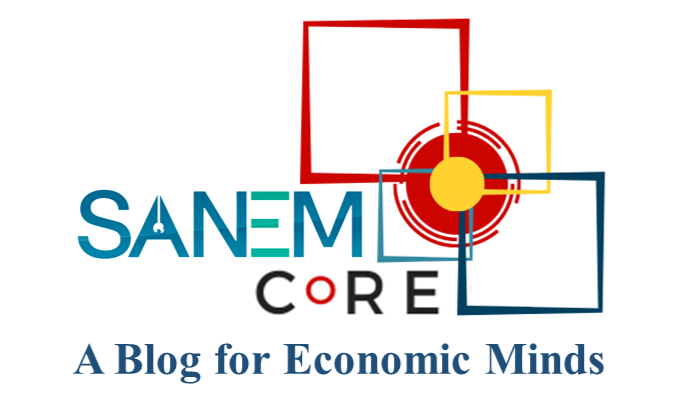The 5th summit of the Bay of Bengal Initiative for Multi-Sectoral Technical and Economic Cooperation (BIMSTEC) ended on March 30, 2022, in Colombo, Sri Lanka. The summit adopted a charter for the first time since its inception in 1997 and signed three memorandums of understanding (MoUs) on the BIMSTEC Convention on Mutual Legal Assistance in Criminal Matters, Mutual Cooperation Between Diplomatic Academics/Training Institutions of the BIMSTEC Member States, and Establishment of BIMSTEC Technology Transfer Facility in Colombo, Sri Lanka. According to the newly adopted BIMSTEC Charter, the summit will now take place every two years, while the meeting of the foreign ministers of member states will take place every year.
Though BIMSTEC’s progress in terms of regional integration, even after 25 years of its existence, has been slow, successful implementation of the agreements of the 5th summit can pave the way for greater integration in the region.
BIMSTEC provides a unique opportunity for its members from South Asia and Southeast Asia to collaborate for mutual benefits. By global standards, the platform is a relatively new regional organization, its seven members coming from a variety of geographical, historical, cultural, and developmental backgrounds. They account for around 22 percent of the world’s population and 4 percent of world GDP, which demonstrates the platform’s considerable potential. Its members have proceeded gradually and carefully to build the institution and foster regional cooperation in a step-by-step manner.
In 2014, for example, a permanent secretariat was formed in Dhaka, led by a secretary-general and staffed by seven country directors appointed by the members. Several key areas of collaboration were identified, and recently consolidated into seven major themes, and some BIMSTEC centers were also set up on priority subjects for the region.
There is no doubt that the Covid-19 pandemic, followed by Russia’s invasion of Ukraine, has drastically altered the global economy’s recovery prospects. The global economy is about to enter a new, more uncertain period marked by increased geopolitical, economic, and pandemic-related threats. Many countries in South and Southeast Asia, particularly the smaller ones, are extremely vulnerable to these threats and face a bleak future of slower growth, limited market opportunities, rising inflation, and increased poverty.
South Asia looking east, and Southeast Asia looking west, offer a pathway to mitigate multiple risks and exploit opportunities for trade-led growth in Asia—a potential that remains largely untapped. International experience suggests that effective regional governance is necessary for economic development and for achieving a peace dividend.
More has to be done, however, to build on these achievements and position BIMSTEC as an effective organization tuned to the needs of the emerging uncertain era. For a start, there is the long-standing unfinished agenda item of concluding a BIMSTEC Free Trade Area (FTA), which has been under negotiation since 2004. A comprehensive BIMSTEC FTA can help reduce barriers to trade and investment and assist businesses to join global supply chains. At the 5th summit, all heads of BIMSTEC governments/states expressed a strong desire to conclude the BIMSTEC FTA negotiation. Therefore, we must bring this to a successful conclusion within a reasonable timetable.
The region displays significant complementarity among the members, which bodes well for a mutually beneficial trade. The foundation of BIMSTEC’s economic growth has been the rules-based, open multilateral trading system. Along with it, the FDI must move freely in the region if we want to promote national growth as well as the regional and global value chains.
The 5th summit also highlighted the importance of energy connectivity, transport connectivity, digital connectivity, and people-to-people connectivity.
Seamless and sustainable multi-modal transport links and synergy with other connectivity frameworks, like the ASEAN Master Plan on Connectivity 2025, are what BIMSTEC needs in the post-Covid era. Improving trade facilitation can also speed up the BIMSTEC integration process. Accordingly, moving to a regional single window in customs and a paperless trade regime can help to reduce trade costs and facilitate cross-border business.
Furthermore, significant work is needed to prepare BIMSTEC members to embrace the potential of the fast-moving digital economy. This means investment in digital technologies and related infrastructure, a business-friendly regulatory approach to e-commerce, and investing in digital skills. It’s important to ensure greater gender equality in education and the workplace for women. It will foster jobs, income, and entrepreneurship across BIMSTEC countries.
These countries differ not only in size, geography, population, and level of development but also in financial resources, technical skills, and development capacity. Most of the members face such constraints that may be further exacerbated for those who are slated to graduate from the group of least developed countries by 2026. In the spirit of solidarity and common purpose, the more advanced members must support the less developed ones so that the benefits of regional integration are spread among all the members.
Fulfilling the economic promise of the BIMSTEC Charter and the proposed development agenda under the “new normal” may not be achieved without empowering BIMSTEC Secretariat. The Secretariat needs to be adequately resourced and should have sufficient power to fulfill its role as a coordinator of activities across BIMSTEC members. It is very encouraging that Indian Prime Minister Narendra Modi announced that India would provide USD 1 million to BIMSTEC Secretariat to increase its operational budget. With the increased resources, there is now a need to develop a roadmap for the capacity building of the Secretariat.
Finally, efforts to overhaul the integration process in the BIMSTEC region require normative dialogues about the desirable and substantive form of regional architecture in this region. The time is ripe for fresh thinking on BIMSTEC’s priorities and developing the required institutional capability for the new era. The success of the regional integration initiative will be guided by a strong “political will” in the BIMSTEC countries to carry the integration agenda forward. The 5th summit creates the optimism that such “political will” will finally be translated into a reality.
The article was first published in the Daily Star, on 31 March 2022.







RECENT COMMENTS